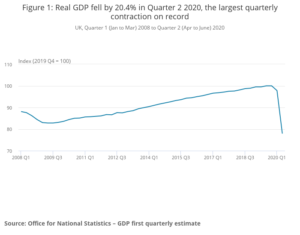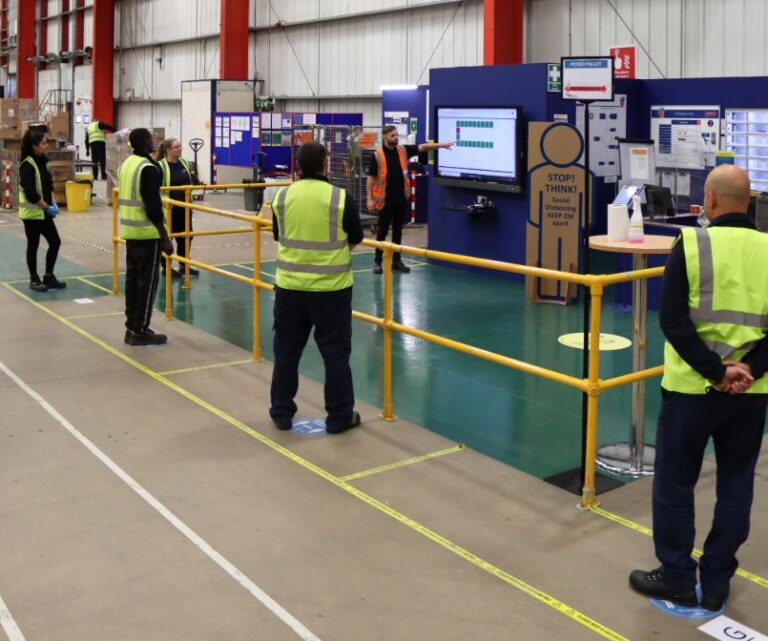Regular readers of Logistics Manager will know that I love a statistic, and August has been full of remarkable ones.
Firstly, we’ll have all seen by now the depth of the recession in the UK during the second quarter of this year. But it is worth repeating as sometimes news of such magnitude takes a while to settle in.
So, the gross domestic product of the UK fell 20.4% in the second quarter of the year – and that is compared to the first quarter of the year which had fallen 2.2% primarily because of lockdown measures. Compared to Q2 2019, the UK GDP was down 21.7%.
 This, said the ONS, is the largest quarterly contraction of the UK economy since its records began back in 1955. We are indeed living through remarkable times, and two consecutive quarters of GDP falls means a recession.
This, said the ONS, is the largest quarterly contraction of the UK economy since its records began back in 1955. We are indeed living through remarkable times, and two consecutive quarters of GDP falls means a recession.
But the shape of this recession is remarkable. Month-by-month GDP figures come with a governmental warning about how reliable they actually are compared to the quarterly figures, but the GDP fall in April was estimated at 20%, while the GDP increase in June was 8.7%, reflecting the stringency of lockdown measures during the quarter.
The government has been left somewhat grasping at straws when it comes to the extent of the impact of lockdown on the UK economy when compared to its peers. The reality is that the UK has been the worst performer in the G7 during the pandemic. And while the G7 is increasingly anachronistic in a quickly changing world, the UK’s true peers in France (falling 18.9% in Q2). Italy (falling 17.1%) and Germany (falling 11.9%) all fared slightly better. The ONS did point to Spain (outside of the G7) which fell 22.7%.
Yet is it simply a case of Boris Johnson waking up one morning and saying ‘lockdown is over’ so the V-shaped recovery can take place? No. Before lockdown was instigated businesses were already instigating travel restrictions for employees and finding ways to work from home. These measures kept many parts of the economy moving as lockdown was introduced.
So, as we slowly emerge from the totality of lockdown into this recovery phase, it will be up to business again to work within the current legislative parameters in order to keep the economy moving upwards. Supply chain and logistics has led the way in this regard, from procurement teams working from home to onboard new suppliers and change product lines through to the social distancing and safety measures instigated in the warehouse. They are indeed pioneers at finding ways to keep the economy moving.
Finally, what the objective needs to be from now on is not just wishing that coronavirus will go away so pre-Covid behaviours can return. Such behaviour is foolish and immature. The truth is Covid is here and we all have to learn to live with it. Recovery plans for business will have to find a way to work through seeing off the virus. The two are intrinsically aligned in delivering a better future for the UK.







